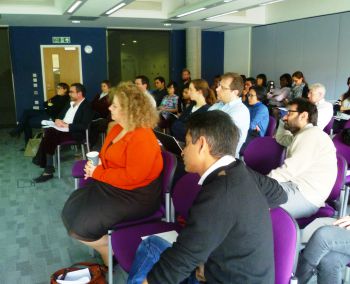Top ten questions for the PhD oral exam
A checklist of ‘viva’ issues that always come up
When you have finally finished writing a PhD dissertation or thesis, and submitted it to the university for review, you are at the end of a long period of grappling with dozens of tricky and detailed problems and issues. For instance, how to upgrade the dodgy paragraph on page 102; what the sources were for Figure 5.7; or how to best (re-)phrase your hypotheses or expectations so as to fit the research you actually did. Perhaps for some weeks after submission these kinds of concerns will buzz around your head. They may even prompt you to lie awake at night rehearsing answers to the examiners, if they should ask about why you did x at one point, instead of y.
Yet an oral examination of a doctorate (a ‘viva’ in British parlance) is rarely just an exercise in ‘Spot the problem’/ ‘Frame an answer’ mode. Many PhDers are surprised to find themselves immersed in a far more generalist (albeit still highly professional) conversation than they had initially anticipated. To prepare effectively for the big day and avoid being blind-sided you may need to change mindset a lot. The oral exam is a crucial session where you almost always need to reconnect with some fundamental themes and claims in your work. You need to think ahead to the issues that examiners often have when they read unfamiliar work, implemented in a way that is new to them. Their concerns generally revolve around: Is this legitimate innovation and focusing? Or it it instead somewhat weird? PhD examiners are guardians of the professional temple, so these issues weigh a lot with them. (These sit alongside some more prosaic concerns, like checking you really did the work yourself, and that you did all that you say you have) The opportunity to meet you in person is key to assuaging these wider concerns.
Here’s where the Top 10 list of questions below can come in useful, as a frame to encourage you to think wider and more generally about the professional conversation to come.
Value-added and originality
- What are the most original (or value-added) parts of your thesis?
- Which propositions or findings would you say are distinctively your own?
- How do you think your work takes forward or develops the literature in this field?
- What are the ‘bottom line’ conclusions of your research? How innovative or valuable are they? What does your work tell us that we did not know before?
Origins and the scope of the research
- Can you explain how you came to choose this topic for your doctorate What was it that first interested you about it? How did the research focus change over time?
- Why have you defined the final topic in the way you did? What were some of the difficulties you encountered and how did they influence how the topic was framed? What main problems or issues did you have in deciding what was in-scope and out-of-scope?
Methods
- What are the core methods used in this thesis? Why did you choose this approach? In an ideal world, are there different techniques or other forms of data and evidence that you’d have liked to use?
Data or information
- What are the main sources or kinds of evidence? Are they strong enough in terms of their quantity and quality to sustain the conclusions that you draw? Do the data or information you consider appropriately measure or relate to the theoretical concepts, or underlying social or physical phenomena, that you are interested in?
Findings
- How do your findings fit with or contradict the rest of the literature in this field? How do you explain the differences of findings, or estimation, or interpretation between your work and that of other authors?
What next?
- What are the main implications or lessons of your research for the future development of work in this specific sub-field? Are there any wider implications for other parts of the discipline? Do you have ‘next step’ or follow-on research projects in mind?


